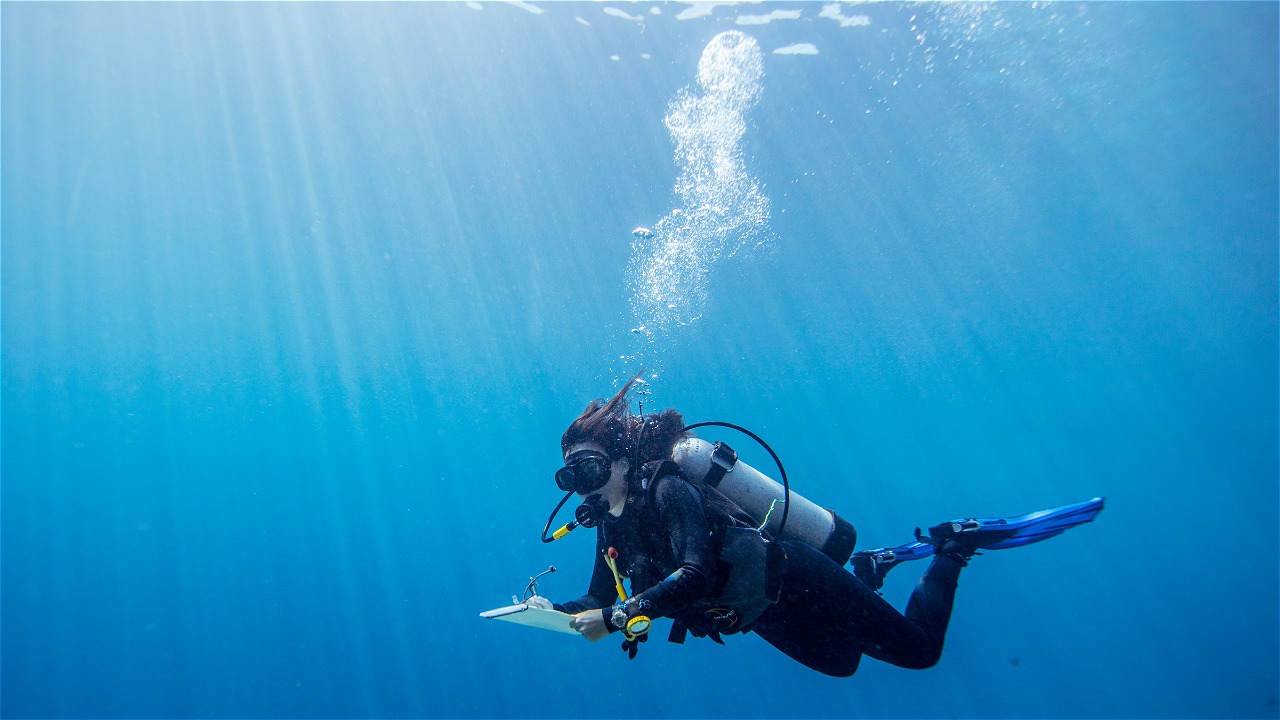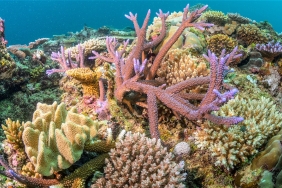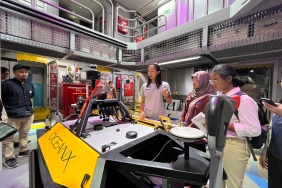USE RESPONSIBLE MARINE TOURISM GUIDELINES AND BE A #TEMANTAMANLAUT
By: Nining Rahayu (Marine Buddies Jakarta Coordinator)
What activities do you usually do when you go on a marine trip? Is it diving into Indonesia's beautiful sea with its coral reefs, or sitting on the beach sand while chatting with friends? But, did you know that as travelers, we need guidance to do responsible marine activities? It turns out that the rapid growth of marine tourism in Indonesia has the potential to have a negative impact on the environment. For example, divers who get too close to coral reefs can cause certain corals to break.
"The growth of the tourist population and tourism business managers has the opportunity to put pressure on natural resources to become a challenge in managing tourism businesses," said Indarwati Aminuddin, Responsible Marine Tourism Coordinator-WWF Indonesia in the first session of the discussion. On April 1, WWF-Indonesia also enlivened the Annual Tourism Exhibition: Deep and Extreme Indonesia 2017 at the Jakarta Convention Center (JCC), by holding a talk show on BEEP Socialization and Responsible Marine Tourism Guidelines.
Together with the Vice President of JANGKAR Association - Eduard Josef Frommenwiler, and outdoor activist Actor - Ramon Tungka, WWF-Indonesia invited participants to start implementing responsible behavior for marine biota conservation in all marine activities while encouraging the government, business people, and the community to be more environmentally conscious. The talk show was lively and active with many questions from the participants about good marine activities when interacting with marine animals without disturbing their activities. "Keeping your distance, not touching, not using flash when taking pictures and not chasing marine animals are some of the main guidelines for interacting with them," said Cassandra, Tania-Marine Species Officer WWF-Indonesia. Often tourists observe marine animals from a close distance and some even desire to be able to interact directly with marine animals. In fact, by chasing and trying to get closer to marine animals, marine animals often feel threatened.
In this discussion, Eduard Josef Frommenwiler, vice president of the JANGKAR Association, explained the association's work program that ensures tourists have access to boats to tourist attractions. Eddy also shared stories about the condition of Indonesian maritime which is currently polluted by plastic waste. "Plastic waste is the biggest problem in marine conservation areas, and Indonesia is the second largest contributor to plastic waste in the world".
As a marine tourism enthusiast, Ramon Tungka also spoke about the need for an active role of the community regarding marine conservation areas through social media. "Responsible use of Social Media has an important role to play in publicizing marine conservation areas," he said. Changes for nature can be made together by spreading positive information through social media channels.
According to him, with the presence of the Marine Buddies application, the community can now contribute to the preservation of marine conservation areas. This is in line with the socialization of marine tourism guidelines that present environmentally-based best practices that involve observing and interacting with marine animals in natural habitats. Because not only environmental sustainability is a shared responsibility, not just the government alone. It's time for us to make a change for Indonesia's marine tourism and be part of #TemanTamanLaut for a more harmonious nature.





